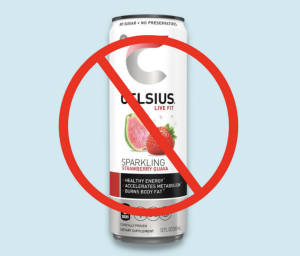NIL for GC Athletics
September 22, 2022
It has been 18 months since Georgia Governor Brian Kemp signed off on landmark legislation passed by the Georgia General Assembly. This legislation overrode nearly a century of precedent set by the NCAA, which consistently advocated amateurism as a core value of their brand, and prevented athletes from being paid to play.
Kemp’s signing of this legislation enacted it into law and came as part of a cascade of state governments nationwide putting similar laws into action. These laws worked to relieve athletes of these monetary sanctions which prevented them from using their name, image and likeness in pursuit of monetary compensation.
California was the first state to begin this momentous shift in the eligibility of college athletes to earn money and serve as brand ambassadors for willing companies, signing a bill of similar nature to Kemp’s in September 2019.
Currently, the decision to enact NIL laws has large been left to individual states. However, a Supreme Court ruling in June 2021 on whether the NCAA can limit education related benefits for athletes ruled unanimously against the NCAA.
While not directly related, this ruling is indicative that this court would be unlikely to uphold the power of the centralized governing body of the NCAA additional at the cost of restricting the personal economic autonomy of athletes.
The general sentiment of the court on issues of the undue power that could potentially exist in the NCAA is revealed in a comment about the ruling of NCAA v Alston .
“Nowhere else in America can businesses get away with agreeing not to pay their workers a fair market rate on the theory that their product is defined by not paying their workers a fair market rate,” said Justice Brett Kavanaugh in an interview provided by the AJC. “The NCAA is not above the law.”
Due to the reluctance of the federal court to rule on NIL, the legality around this issue is a bit opaque and largely dependent on what state you live in. Currently, 27 states have NIL laws on the books, most of which went into effect on July 1, 2021.
Highly regarded GC athletes have greatly benefited from the passage of this NIL legislation, including GC athlete of the week and star goalkeeper Kate Richardson. Richardson has been a brand ambassador for Liquid IV since last year and speaks highly of the opportunity provided to her by the passage of this legislation.
“It is exciting to know that these companies offer these deals not just to D1 athletes but to D2 and D3 athletes as well,” Richardson said. “It feels rewarding to obtain recognition in this way for my success on the field.”
Richardson often offers some of the supplies she is sent by Liquid IV to her friends and teammates.
GC volleyball junior Callie Miller has also earned an endorsement deal with Alani Nu, an energy drink company.
“Some benefits I’ve seen for NIL is it gives athletes an opportunity to endorse brands they support or use day to day,” Miller said. “I think it’s been a great opportunity for athletes to use the hard work they have put in to build their names and use it to showcase companies that are supportive to athletes.”
Top executives in the NCAA remain extremely opposed to the idea of athletes gaining rights to their names, image and likeness. They feel that the core value of amateurism seen in NCAA sports for the last century will dissipate and the antics that come with the paid professional game such as contract negotiation will ruin the unique product that has been offered by collegiate sports
Evidence of these problems appear to be arising in the sports as the transfer portal is hotter than ever. Just under half of the starting NCAA D1 quarterbacks are transfers. Miami basketball star Isaiah Wong threatening to enter the transfer portal if his NIL compensation is not increased and intrateam tensions concerning compensation of players based on respective skill and fame.
While it is clear that the NIL is changing the nature of collegiate sports in a way that critics of it find abominable, it is opening up a variety of revenue streams for athletes that were not previously accessed.
Furthermore, it would be callous to neglect the fact that the NCAA turns colossal profits off of these athletes with no cost of labor. This fact certainly invites skepticism to the NCAA’s attempt to make an upstanding moral argument about their attempt to “preserve the spirit of the game.”
It remains to be seen if the NIL right will continue to diffuse to other colleges across the country as more states look to pass similar legislation, as well as the impact these laws will have on collegiate sports in the long term.






